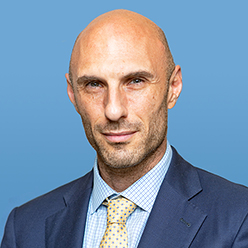The White House announced that US President Biden will be traveling to Saudi Arabia in a few weeks, where he is expected to break his campaign promise to punish the country and treat them “like the pariah they are.” While there, the president might also wish to build bridges by visiting Medina, the place where Islam was born and where the Prophet Muhammad is buried. For perhaps 1,300 hundred years, only Muslims have been allowed to visit Islam’s second holiest city. But that appears to be changing, part of a larger transformation in Saudi society.
On the road to Medina, Saudi officials recently removed signs reading “Muslims only,” and last month, a delegation of 50 Jewish business leaders closely affiliated with Israel visited the Prophet’s Mosque, Al-Masjid al-Nabawi, in Medina as part of a visit meant to promote mutual understanding, respect and tolerance.
The delegation comprised members from 13 countries, and many were nervous before departure. Some wondered whether they would be allowed to enter the kingdom, be restricted in meetings, be limited in what they could say, or be able to move around freely. A security officer for one of the members instructed him not to go and to expect the worst if he did. Another member worried that she might never see her eight children again.
In the end, though, the opportunity to promote friendship, peace and collaboration was strong enough to overcome their doubts. Wherever we went, we found our delegation members and the Saudis shared deep family, personal and business experiences and began to explore business collaboration. It felt like old friends and family being reunited, not uncomfortable and guarded as many in the delegation had envisioned.
At no point during our trip did anyone evade the hard questions facing Saudi Arabia, Israel or the region. Not every conversation was easy, but the exchange of ideas changed every member of our delegation. Israeli technology’s solutions to some of the world’s most intractable problems were a constant source of dialogue, as was the Saudis’ willingness to open their society, diversify their economy and be seen as a willing partner in making the world a better place.
Going to Medina
IT SEEMED CLEAR to us that they were breaking centuries-old taboos, including speaking openly about Israel and Jews and re-imagining working together on society’s gravest challenges. These conversations gave us tremendous hope. As our first event ended, I approached the man whose security officer had told him not to come, and he whispered quietly, “I can’t talk to you right now, this is the opposite of what I expected.”
The heart and soul of our mission was in Medina. We came to telegraph to the Saudis and the greater Muslim world our desire to engage by seeing with our own eyes the places that shaped civilization.
Medina was sublime. Our guide took us into the open-air courtyard filled with massive umbrellas outside the prayer complex, which accommodates 1 million worshipers. We saw people from every corner of the globe speaking dozens of languages. When I sat down in sight of the mosque’s green dome, the resting place of the Prophet and two of the four righteous caliphs, with a vacant place for Jesus, I went through my own daily meditation process and thought deeply about the long arc of history. I looked at my fellow delegates and knew that each of them was forever changed by coming to the kingdom and to this holy place.
As we shared our experience in Medina with our Saudi colleagues, they seemed overjoyed that we made the effort to understand their civilization by visiting one of Islam’s most revered places. “Coming openly and in the spirit of seeking to understand means so much,” said one Saudi. “Your visit will also force us to see Jews and Israelis differently.”
In the last few years, Israel and its neighbors have continued the journey toward reconciliation begun with the peace accords with Egypt (1978) and Jordan (1994), and signing the Abraham Accords with Bahrain, the United Arab Emirates, Sudan and Morocco (2020). I hope that soon, Saudi Arabia will join the Accords as well.
Rabbi Schneur Zalman of Liadi said, “A little bit of light dispels a lot of darkness.” Only by sharing the personal can we see each other for who we truly are. Before our trip, it felt like there was a vast ocean between two worlds and that those who tried to cross it were turned away or drowned. Going to Medina, we felt like the first to make it to the other shore.
